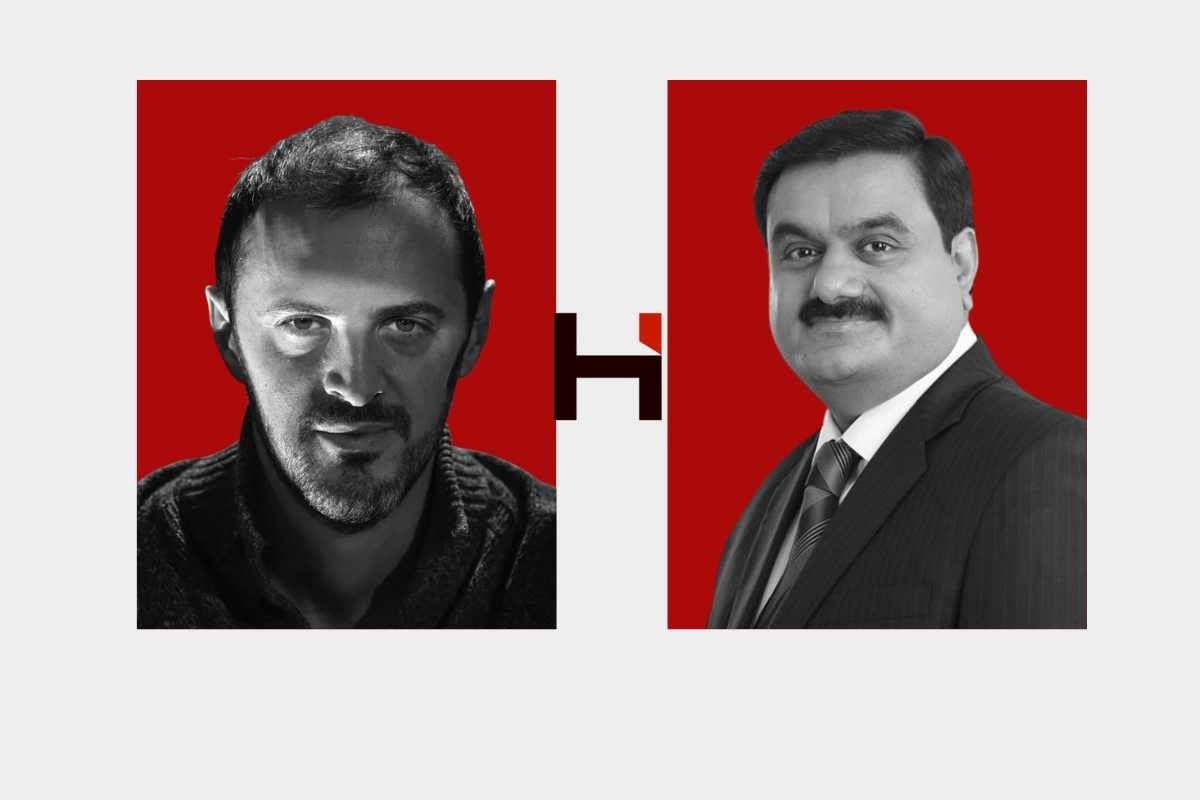Billionaire businessman Gautam Adani is no longer the world’s third-richest person after activist investment firm Hindenburg Research accused his conglomerate, Grupo Adani, of orchestrating fraud. The Hinderburg report created a stir, Gautam Adani lost ₹ 489993000000 in a day.
Through a report, Hindenburg indicated that the companies of said conglomerate, belonging to the richest man in Asia, were involved in “a brazen scheme of stock manipulation and accounting fraud for decades.”
A famous seller of the aforementioned company was the one who published the report accusing Adani of an alleged plan to manipulate the company’s share price. After that, Adani lost the title of the richest person in the world, which was left in the hands of the founder of Amazon, Jeff Bezos.
Who is Nathan Anderson?
Nathan Anderson, 38, who graduated from the University of Connecticut with a bachelor’s degree in international business, began his career in finance at data firm FactSet Research Systems Inc, where he worked with investment management firms.
According to a Reuters report, Nathan Anderson worked at FactSet Research Systems Inc, a data company, after earning a bachelor’s degree in International Business from the University of Connecticut.
“I noticed they were doing a lot of run-of-the-mill analysis, there was a lot of compliance,” he told the Wall Street Journal (WSJ) in 2020. He also did a short stint earlier as an ambulance driver in Israel.
During college, he lived for a time in Israel, working as a paramedic while taking classes at the Hebrew University. He later worked for a financial analysis firm before scouting potential offers for wealthy family investment firms. His passion, he says, is “finding scams.”
The short seller says on his LinkedIn page that he gave him “experience of thinking and acting under extreme pressure.” Anderson has said in interviews that Harry Markpolos, an analyst who first pointed out Bernie Madoff’s fraud scheme, is his role model.
Stock manipulation and money laundering
The report alleges that the shell companies are used for “stock manipulation” and “money laundering”, using the private companies of the Adani Group on the books of publicly traded companies “to maintain the appearance of solvency and health financial”.
The report also criticizes “investors, journalists, citizens, and even politicians,” saying they held back on “big blatant fraud in broad daylight” for fear of retaliation. As of Wednesday morning Later, the Hindenburg report received little coverage in the Indian media outside of syndicated reports from business news agencies such as Reuters or Bloomberg.
Hindenburg Research said the Adani Group companies are intricately and clearly linked and dependent on one another. None of the listed entities is isolated from the performance, or failure, of the other companies in the group. “We believe that it could take a single severe liquidity event in a single entity to trigger a negative cascade of events in other entities in the group that could affect the entire Adani Group.”
Adani companies under liquidity risk
Four of Adani’s publicly traded companies are near the delisting threshold due to high developer ownership, according to a report published by Hindenburg Research, an investment research firm that focuses on sales in short activists.
The report also said that five companies in the group (all but Adani Ports and Adani Wilmar) have current ratios below 1.0, suggesting increased near-term liquidity risk. Furthermore, Adani Wilmar, a new company with current insider ownership of 87.94%, must reduce its insider holdings to 75% by early 2025 to meet these requirements – a significant feat requiring the offloading of 12.94% of its current insider equity.
ALSO READ
- Timeline: How Adani acquired NDTV?
- What is the religion of Gautam Adani?
- Anant Ambani, Karan Adani on Maha Economic Advisory Council
- Who is Nathan Anderson, person behind Adani’s Hindenburg report?
- Know all about Shah Dhandharia & Co, CA firm which audits Adani group
Follow Ground Report for Climate Change and Under-Reported issues in India. Connect with us on Facebook, Twitter, Koo App, Instagram, Whatsapp and YouTube. Write us at GReport2018@gmail.com.






